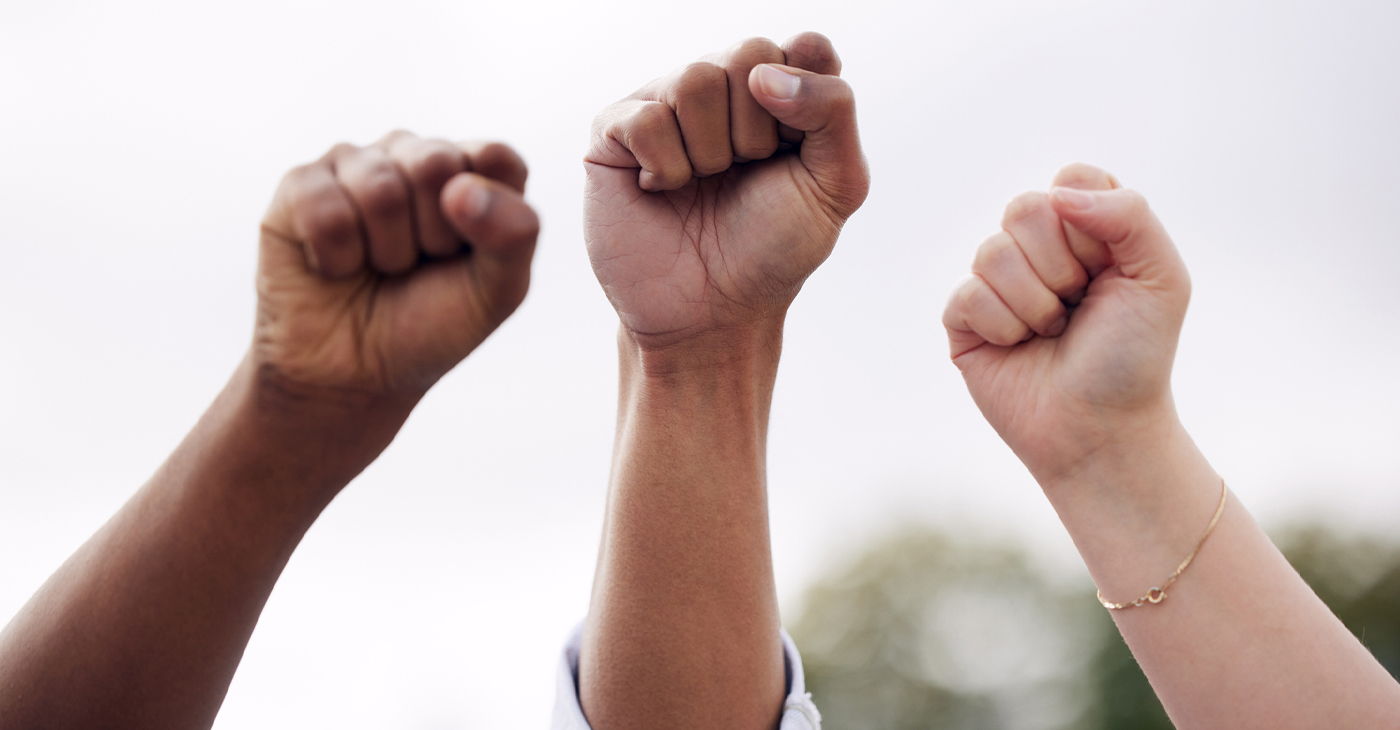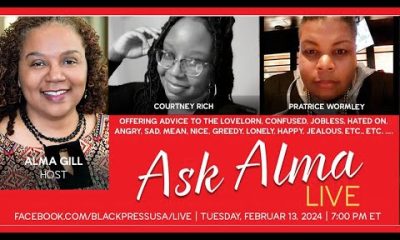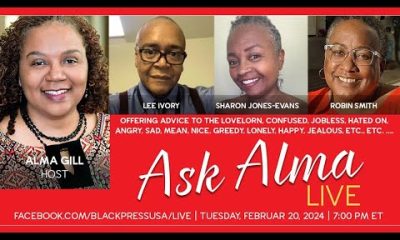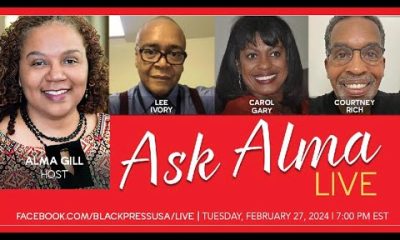Commentary
COMMENTARY: For profit prisons
NASHVILLE PRIDE — Private for-profit prisons are a contentious reality that many feel may have a lingering detrimental effect on people.
Private for-profit prisons are a contentious reality that many feel may have a lingering detrimental effect on people, especially African Americans and people of color undergoing adjudication that may lead to incarceration in this country. It may be surprising how the public as a whole is not enraged and seeking to correct this practice. It is arguably a conflict of interest and can be considered an insult as well as a travesty of injustice for anyone who advocates for true equality and justice.
We have two types of prison systems. First, we have public prisons and jails run by local, state, and federal government—supported and run with taxpayer‘s money. This system, therefore, offers more public transparency and accountability. Then we have private for-profit run prisons contracted as a third party with the expectations of saving the system money. In the process of saving money, corners are cut. Thus you may find little accountability or transparency in the documentation, minimal rehabilitation, less security, fewer employees, compromised medical care, and more violent assaults among inmates and with staff occurring.
The largest private prison company in this country is CCA (Corrections Corporation of America) now called Core Civics located in Nashville Tennessee. It is rarely publicly criticized as a problematic entity and is considered a good company to invest in. Privately contracted prisons originally came about to help handle the surplus of those being sent to jail for drug-related crimes. The main argument for contracting prisons to private operations was to save money.
The Bureau of Justice Statistics’ last report stated that seven percent of state prisons were privately run, while 18% of federal prisons were privately contracted out. There are some who would argue that privately run prisons do not present a problem since the majority of prisons are publically run.
Make no mistake: if a private for-profit prison is a business, one can conclude that making money is the main objective and bodies are needed to meet that goal. It is not too hard to understand that justice may be compromised by subtly granting longer sentences that unfairly target various groups of people. This argument may have some credibility when considering that contracts granted to private prisons are based upon the percentage of beds being filled and longer amount of time of incarceration.
Let’s not rationalize. We know that it is morally wrong to capitalize on someone’s misfortune, especially if fairness for all is questionable or if outcomes are advantageous to private, self-serving parties. Unfortunately, but true, justice many times tends to play favorites, depending on what side of the spectrum one falls. Race, economic status, and whom you may know are some of the major factors impeding impartial treatment for all.
No one is questioning the need for prisons. But improprieties exist, and filling these prisons can often be guided by unfair practices.
Maybe if we were to live in a society where everyone (regardless of race, gender, religion, or social/economical status) is given equal access and consideration under the law, we all would feel more comfortable embracing our criminal justice system and the punishments rendered.But as it stands now, you have private companies with investors to satisfy. These companies pay lobbyists to lobby in our legislative arenas to encourage our elected representatives to enact legislation that surreptitiously promotes laws and sentencing that helps in their objective to fill more beds, making it more profitable for their investors.
Many would readily agree that privatized for-profit prisons are a flaw in our penal system, but it is apparent that the big influence and money from private companies trumps correcting this practice. We live in a capitalistic society where one could argue making money is paramount, whatever the overall cost to society.
This article originally appeared in the Nashville Pride.
Commentary
Opinion: Lessons for Current Student Protesters From a San Francisco State Strike Veteran
How the nation’s first College of Ethnic studies came about, bringing together Latino, African American and Asian American disciplines may offer some clues as to how to ease the current turmoil on American college campuses over the Israel-Hamas war. After the deadline passed to end the Columbia University encampment by 2 p.m. Monday, student protesters blockaded and occupied Hamilton Hall in a symbolic move early Tuesday morning. Protesters did the same in 1968.

By Emil Guillermo
How the nation’s first College of Ethnic studies came about, bringing together Latino, African American and Asian American disciplines may offer some clues as to how to ease the current turmoil on American college campuses over the Israel-Hamas war.
After the deadline passed to end the Columbia University encampment by 2 p.m. Monday, student protesters blockaded and occupied Hamilton Hall in a symbolic move early Tuesday morning.
Protesters did the same in 1968.
That made me think of San Francisco State University, 1968.
The news was filled with call backs to practically every student protest in the past six decades as arrests mounted into hundreds on nearly two dozen campuses around the country.
In 1970, the protests at Kent State were over the Vietnam War. Ohio National Guardsmen came in, opened fire, and killed four students.
Less than two weeks later that year, civil rights activists outside a dormitory at Jackson State were confronted by armed police. Two African American students were killed, twelve injured.
But again, I didn’t hear anyone mention San Francisco State University, 1968.
That protest addressed all the issues of the day and more. The student strike at SFSU was against the Vietnam war.
That final goal was eventually achieved, but there was violence, sparked mostly by “outside agitators,” who were confronted by police.
“People used the term ‘off the pigs’ but it was more rally rhetoric than a call to action (to actually kill police),” said Daniel Phil Gonzales, who was one of the strikers in 1968.
Gonzales, known as the go-to resource among Filipino American scholars for decades, went on to teach at what was the positive outcome of the strike, San Francisco State University’s College of Ethnic Studies. It’s believed to be the first of its kind in the nation. Gonzales recently retired after more than 50 years as professor.
As for today’s protests, Gonzales is dismayed that the students have constantly dealt with charges of antisemitism.
“It stymies conversation and encourages further polarization and the possibility of violent confrontation,” he said. “You’re going to be labeled pro-Hamas or pro-terrorist.”
That’s happening now. But we forget we are dealing not with Hamas proxies. We are dealing with students.
Gonzales said that was a key lesson at SF State’s strike. The main coalition driving the strike was aided by self-policing from inside of the movement. “That’s very difficult to maintain. Once you start this kind of activity, you don’t know who’s going to join,” he said.
Gonzales believes that in the current situation, there is a patch of humanity, common ground, where one can be both pro-Palestine and pro-Israel. He said it’s made difficult if you stand against the belligerent policies of Benjamin Netanyahu. In that case, you’re likely to be labeled antisemitic.
Despite that, Gonzales is in solidarity with the protesters and the people of Gaza, generally. Not Hamas. And he sees how most of the young people protesting are in shock at what he called the “duration of the absolute inhumane kind of persecution and prosecution of the Palestinians carried out by the Israeli government.”
As a survivor of campus protest decades ago, Gonzales offered some advice to the student protesters of 2024.
“You have to have a definable goal, but right now the path to that goal is unclear,” he said.
About the Author
Emil Guillermo is a journalist and commentator. A veteran newsman in TV and print, he is a former host of NPR’s “All Things Considered.”
Activism
Oakland Post: Week of May 1 – 7, 2024
The printed Weekly Edition of the Oakland Post: Week of May 1 – 7, 2024

To enlarge your view of this issue, use the slider, magnifying glass icon or full page icon in the lower right corner of the browser window. ![]()
Activism
Oakland Post: Week of April 24 – 30, 2024
The printed Weekly Edition of the Oakland Post: Week of April 24 – 30, 2024

To enlarge your view of this issue, use the slider, magnifying glass icon or full page icon in the lower right corner of the browser window. ![]()
-

 Community3 weeks ago
Community3 weeks agoFinancial Assistance Bill for Descendants of Enslaved Persons to Help Them Purchase, Own, or Maintain a Home
-

 Business3 weeks ago
Business3 weeks agoV.P. Kamala Harris: Americans With Criminal Records Will Soon Be Eligible for SBA Loans
-

 Activism4 weeks ago
Activism4 weeks agoOakland Post: Week of April 10 – 16, 2024
-

 Community3 weeks ago
Community3 weeks agoAG Bonta Says Oakland School Leaders Should Comply with State Laws to Avoid ‘Disparate Harm’ When Closing or Merging Schools
-

 Activism2 weeks ago
Activism2 weeks agoOakland Post: Week of April 24 – 30, 2024
-

 Community2 weeks ago
Community2 weeks agoRichmond Nonprofit Helps Ex-Felons Get Back on Their Feet
-

 City Government3 days ago
City Government3 days agoCourt Throws Out Law That Allowed Californians to Build Duplexes, Triplexes and RDUs on Their Properties
-

 Community2 weeks ago
Community2 weeks agoOakland WNBA Player to be Inducted Into Hall of Fame






















































